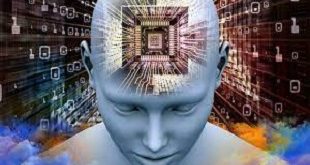Introduction
Artificial Intelligence (AI) and Machine Learning (ML) are undoubtedly among the most transformative technologies of our time. As they continue to shape our daily lives, revolutionize industries, and drive innovation across the globe, it is essential to take a deep dive into the world of AI and ML. This article explores the profound impact, current applications, challenges, and the future potential of AI and ML, ushering in a new era of technology-driven evolution.
The Rise of Artificial Intelligence and Machine Learning
Artificial Intelligence, a term that has fascinated scientists, innovators, and science fiction enthusiasts for decades, has transitioned from a concept in fiction to a technological reality. AI is a multidisciplinary field that encompasses the development of computer systems capable of performing tasks that typically require human intelligence, such as understanding natural language, recognizing patterns, making decisions, and problem-solving.
Machine Learning, a subset of AI, refers to the development of algorithms that enable computer systems to improve their performance on a specific task through learning from data, without being explicitly programmed. ML techniques, including neural networks and deep learning, have propelled AI to new heights and made it more capable than ever before.
AI and ML are rapidly advancing, largely driven by a convergence of factors such as increased computing power, the availability of big data, and improvements in algorithm design. This convergence has allowed AI and ML to permeate various aspects of our lives and reshape multiple industries, from healthcare and finance to transportation and entertainment.
The Impact of AI and ML in Various Industries
The transformative power of AI and ML is evident across an array of sectors, providing practical solutions to age-old challenges and enhancing productivity and innovation. Let’s explore how these technologies are revolutionizing different industries:
- Healthcare: AI and ML are streamlining healthcare processes through predictive analytics, image recognition, and personalized treatment recommendations. They are being used for disease diagnosis, drug discovery, and patient data management.
- Finance: In the financial sector, AI-driven algorithms analyze large datasets to identify fraudulent transactions, optimize investment portfolios, and predict market trends. AI chatbots also assist customers in managing their finances.
- Transportation: Self-driving cars and drones are becoming a reality, thanks to AI and ML. These technologies are transforming the transportation industry by increasing safety and reducing congestion.
- Retail: E-commerce giants utilize AI for customer recommendations and inventory management, enhancing the online shopping experience. Additionally, chatbots provide customer support and streamline order processing.
- Manufacturing: AI-driven robots and automated systems are improving efficiency and quality control in manufacturing plants. Predictive maintenance models help prevent equipment breakdowns.
- Entertainment: In the entertainment industry, AI is used to analyze viewer preferences and create personalized content recommendations. AI also contributes to special effects in movies and video games.
- Agriculture: AI and ML are improving crop yield predictions, monitoring soil conditions, and automating farming equipment. Precision agriculture is helping farmers make data-driven decisions.
- Education: AI-powered educational platforms offer personalized learning experiences. They adapt content and teaching methods to individual students, enhancing their understanding and retention of knowledge.
- Energy: AI is used for optimizing energy consumption, managing the electrical grid, and increasing the efficiency of renewable energy sources, such as solar and wind power.
Challenges in the World of AI and ML
While AI and ML hold incredible promise, they also present a set of challenges and concerns that need to be addressed for their continued growth and responsible use:
- Data Privacy: The abundance of data required for AI and ML models raises concerns about data privacy and security. Unauthorized access to sensitive information can have significant consequences.
- Bias and Fairness: AI systems can inherit biases present in the training data, leading to discriminatory outcomes. Ensuring fairness and transparency in AI decision-making is a critical challenge.
- Regulation: The rapid development of AI has outpaced regulatory frameworks, raising questions about accountability and ethical guidelines. Striking a balance between innovation and regulation is essential.
- Explainability: AI models, particularly deep learning algorithms, can be highly complex and difficult to interpret. The lack of explainability can hinder trust in AI systems, particularly in critical domains like healthcare and finance.
- Job Displacement: The automation of tasks and jobs by AI and robotics is a concern for the labor market. Preparing the workforce for the changing job landscape is essential.
- Security Risks: AI can be used maliciously, from automated cyberattacks to deepfake technology. Defending against AI-driven threats is an ongoing challenge.
- Ethical Dilemmas: AI may present ethical dilemmas in areas like autonomous weaponry, privacy invasion, and the potential misuse of AI technologies.
The Future of AI and ML
As AI and ML continue to advance, we can anticipate several key trends and developments that will shape the future of these technologies:
- AI-Powered Personalization: AI will further personalize various aspects of our lives, from entertainment and healthcare to education and shopping.
- Robotic Process Automation (RPA): The integration of AI-driven bots and robotic process automation will streamline repetitive tasks across industries, increasing efficiency and reducing costs.
- Healthcare Revolution: AI will lead to significant breakthroughs in disease diagnosis, treatment, and drug discovery. Telemedicine and remote patient monitoring will become more commonplace.
- AI and Climate Change: AI will play a pivotal role in addressing climate change by optimizing energy consumption, advancing renewable energy, and improving environmental monitoring.
- Quantum AI: The development of quantum computing will enable AI to process vast amounts of data at unprecedented speeds, revolutionizing data analysis and modeling.
- AI Ethics and Regulation: The importance of ethical AI development and regulation will be increasingly recognized, as societies and governments address the challenges of bias, fairness, and transparency.
- AI in Education: AI will continue to transform education by personalizing learning, automating administrative tasks, and providing more accessible and affordable educational content.
- AI in Space Exploration: AI technologies will assist in space exploration, from autonomous spacecraft to data analysis and predictive modeling for planetary exploration.
- AI in Creativity: AI-generated content, from art and music to literature and design, will become more prevalent, raising questions about authorship and creativity.
- AI and Healthcare Diagnostics: AI will contribute to early disease detection and diagnosis, reducing the burden on healthcare systems and improving patient outcomes.
Conclusion
Artificial Intelligence and Machine Learning are ushering in a new era of technology-driven innovation and evolution. Their impact is seen across various industries, offering solutions to age-old problems and reshaping the way we live and work. However, with great power comes great responsibility, and addressing the challenges of data privacy, bias, and regulation is essential for the responsible development and deployment of AI and ML.
The future of AI holds incredible promise, from personalized experiences to groundbreaking advancements in healthcare and climate change mitigation. By harnessing the potential of AI and ML while remaining vigilant about the associated challenges, we can ensure that these transformative technologies continue to benefit society, foster innovation, and make the world a better place. The journey of AI and ML is far from over, and the possibilities they bring are limited only by our collective imagination and commitment to responsible innovation.


